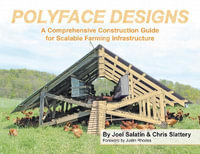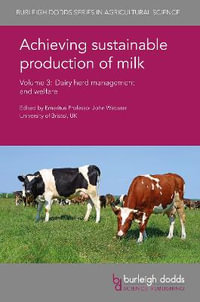In many ways this book tells a familiar story in British industry: of innovation and enterprise in the early decades ...of worldwide dominance at a time when Britain was the workshop of the world ...of wars and economic downturns ...of foreign competition ...and of relative and absolute decline on the path of - de-industrialisation in the latter part of the twentieth century. For most of this period the farm machine industry grew and matured. It is an inspiring story of technological achievement and of industrial success, as farmers and engineers brought iron and steel to fields which had - previously been the domain of locally made timber implements and power provided by horses.Agricultural technology moved on, inexorably, from broad-cast seed and the sound of the threshing flail, via the portable steam engine and the threshing machine, right through to the modern world of giant tractors - each with the power of 200 horses - combine harvesters and - impressively efficient farming methods.This book traces the broad sweep of the whole industry over 200 years, looking at many individual companies and products to explain how and why the farm machinery industry developed in the way it did.
Important individual machines are described and illustrated in detail. The British farm machine industry is unlikely ever again to be large by world standards, nor to dominate the world stage as once it did. Yet the author traces a rich vein of innovation, enterprise and technological inspiration, often taking place within the large number of relatively small-scale, craft-based workshops which were so prevalent in the early decades. Rather than mere manufacturing, therefore, perhaps it is this tradition of technical innovation and invention which marked out the British farm machinery industry for historical greatness, and perhaps it is this tradition which will continue to mark it out in the future.
Industry Reviews
'With careful, scholarly analysis, author Peter Dewey - a lecturer in economic history at Royal Holloway, University of London - has pieced together a remarkable portrait of the development of the entire farm machinery industry ... Information flows from every page - and the budding student of agrarian economy and modern agri-business will be delighted by the graphs and tables which chart machinery exports. There are astonishing details of the men who pioneered the radical changes in the way food was harvested and brought to the population and the archive photographs and illustrations of everything British farm machinery history from Canadian Auto-Trucks to the 1958 Massey Ferguson trailed dung spreader are a delight ... This is a book of solid academic quality, but which will also fascinate the general reader who has an enquiring mind ... Mr Dewey deserves enormous praise for his landmark publication.From the review in Tractor and Machinery, July 2008[This] is the work of the mature historian, combining economic and business insight with a deep understanding of the practical aspects of the agricultural machinery industry and its role in the success of British farming over the past two centuries. It is a work of considerable scholarship tempered with agreeable lucidity.Based substantially on archive material from repositories the length and breadth of Britain, Iron Harvests leads us chronologically from the efforts of the wheelwright and carpenter of the late eighteenth century through to the creators of the behemoths stalking the fields of modern-day Britain. As he describes each generation of new machinery, with specific examples being covered in some detail, Dewey is careful to set developments alongside the national and international economic background and changes in the fortunes of the home-based agricultural economy. Indeed, one of the book's great strengths is its success in explaining the sometimes subtle relationships between technological change, social conditions and the relative success or failure of the many agricultural engineering firms whose beginnings lay in the industrial foment of the late eighteenth and early nineteenth centuries ...Dr Dewey has produced a tour de force which is unlikely to be bettered in the near future. His beautifully illustrated and scholarly book is a major achievement. Whether they sip it like a good wine and savour it in small amounts, or swallow it whole like a Galway oyster, a generation of agricultural, economic, business and urban historians will benefit from Dewey's efforts.from the review in Agricultural History Review, by R. J. MOORE-COLYER Aberystwyth University
























